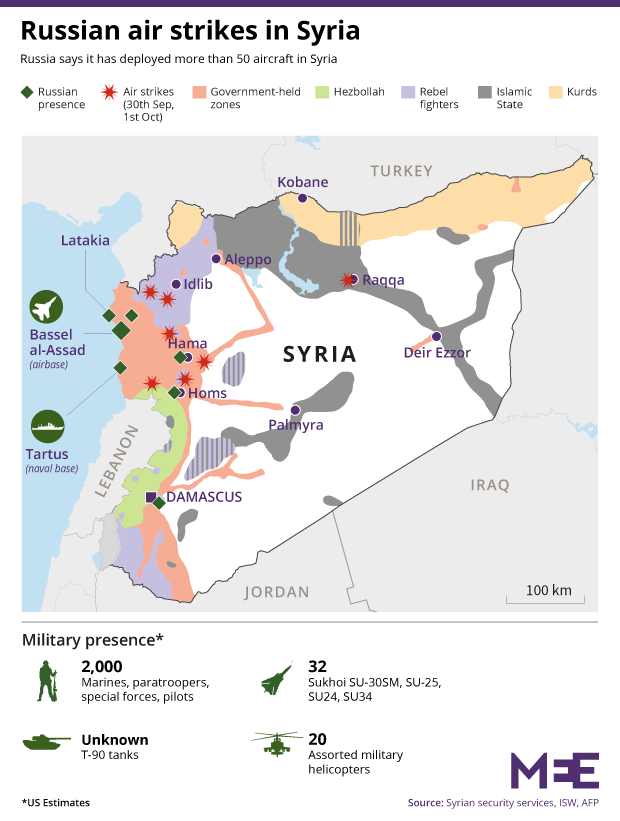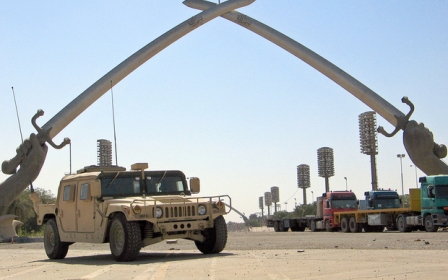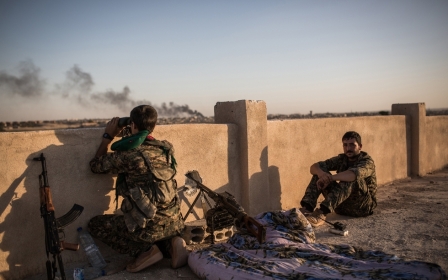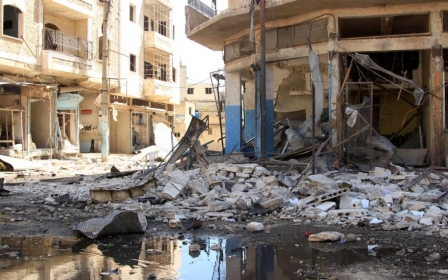Russian lawmaker: Airstrikes in Syria could last 3 to 4 months
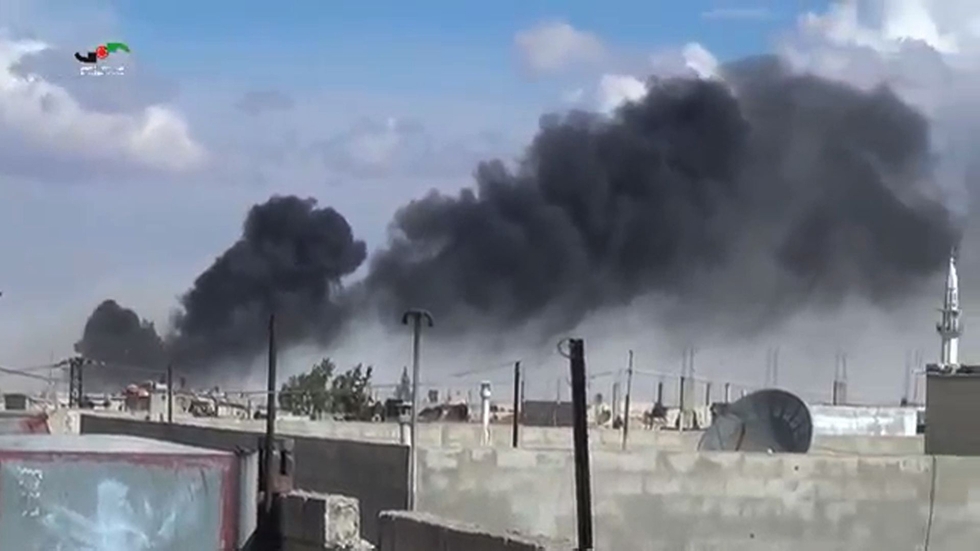
Russia’s airstrikes in Syria could last three to four months, a Russian MP said on Friday, as the country faces stiff criticism for allegedly killing civilians and non-Islamic State opposition groups in the first few days of its campaign.
"There is always a risk of getting bogged down, but in Moscow they're talking about three to four months of operations," Alexei Pushkov, the head of the foreign affairs committee of Russia's lower house of parliament, told France's Europe 1 radio.
After the interview aired, news broke that overnight Russia had hit an Islamic State group stronghold in Raqqa, which has been the group's Syria headquarters since last year.
At least 12 militants were killed in the raid near the city's military airport, Rami Abdel Rahman, head of the UK-based Syrian Observatory for Human Rights said.
The strikes are believed to be the first against Islamic State since Russia began bombing Syria in coordination with Syrian President Bashar al-Assad on Wednesday.
While Russia indicated that its campaign would be aimed at IS, its first strikes appear to have targeted non-IS groups and caused civilian casualties.
Two children were among at least seven civilians killed in airstrikes carried out by Russian warplanes in Syria's northwestern province of Idlib on Thursday, the Observatory said.
"Four civilians, including a child and a woman, were killed in raids conducted by Russian military aircraft," it added.
The airstrikes hit the district of Jabal al-Zawiya, in an area under the control of al-Nusra Front, al-Qaeda's affiliate in Syria, and other rebel groups, said the Britain-based monitor.
According to the observatory, Russian airstrikes on Syria have killed 28 people since Wednesday.
Syria's main opposition group accused Moscow of killing 36 civilians in the central province of Homs on Wednesday, but the Kremlin has denied that any civilians were among the dead.
Russian President Vladimir Putin has hit back at the allegations, describing them as "information warfare".
Washington and its allies, however, suspect its military intervention is aimed at keeping in power President Assad under the guise of fighting "terrorism".
IS is not known to be operational in the areas targeted by Russia on Wednesday or Thursday. Instead, reports indicate that Russia has struck a number of other rebel groups fighting the Assad government. On Thursday, Russian jets reportedly struck fighters with the Jaish al-Fatah coalition in Idlib, which includes both al-Nusra and more moderate forces.
Jaish al-Fatah has been one of the few groups to threaten Assad’s heartland in Latakia. Further controversy arose after a commander from a rebel group that received training from the CIA said on Thursday that his encampment had been hit by Russian airstrikes.
Hassan Haj Ali, head of Liwa Suqour al-Jabal, said his camp in Idlib province was struck by around 20 missiles in two separate sorties.
The US-led coalition has said its campaign is targeting IS in Syria, however it has also hit other militant groups including al-Nusra in strikes since the bombing campaign in Syria began in August 2014.
During a news conference at the UN on Thursday, Russian Foreign Minister Sergei Lavrov obliquely dismissed concerns that his country was targeting a wider range of groups in Syria that originally indicated.
“If it looks like a terrorist, walks like a terrorist, acts like a terrorist, fights like a terrorist, it’s a terrorist, right?” he told reporters.
Analysts are concerned about the apparent escalation, which many fear could further exasperate the already bloody four-and-a-half-year civil war. An independent analyst told the Guardian that Qatar – acting with the agreement of Saudi Arabia – may already have started sending planeloads of weapons to Turkish airbases.
“I would expect a huge influx of weapons into the north to try to blunt any ground assault by the regime,” the analyst said. “The stakes are very high.”
Middle East Eye propose une couverture et une analyse indépendantes et incomparables du Moyen-Orient, de l’Afrique du Nord et d’autres régions du monde. Pour en savoir plus sur la reprise de ce contenu et les frais qui s’appliquent, veuillez remplir ce formulaire [en anglais]. Pour en savoir plus sur MEE, cliquez ici [en anglais].


